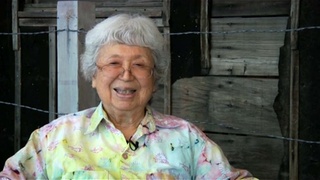Interviews
Lessons learned from The Hapa Project
The overwhelming response has been really positive. That’s been great for me, but the important thing that I learned from it is that I’m as scared as anyone else to be around people that aren’t like me. I can’t name one of my friends that’s homophobic, I can’t name one of my friends that doesn’t respect a woman’s right to choose, I can’t name one of my friends that’s racist. I don’t know. I don’t know. I don’t know a single friend that would have voted for Bush! And that’s my problem—I surround myself with people like me. And that’s no good!
So when I had this guy that wrote down about the camps, and he wrote down “Many of our parents overreacted after the camps and didn’t teach us the language or customs of Japan.” And I was just like—I mean, I was just amazed! And I felt like I would never have known that point of view, and I felt that was really beneficial for me to meet him because that’s the world I live in, that’s my community. I mean, this guy, that guy’s Hapa, that guy’s J-A, that’s my community, I need to know that. I need to know that my audience isn’t all leftist, pro-environment, anti-SUV—you know, whatever it is that I’m feeling, I tend to surround myself with my friends and it’s lazy, so I felt it was a good reality check for me.
Date: May 3, 2006
Location: California, US
Interviewer: Jim Bower
Contributed by: Watase Media Arts Center, Japanese American National Museum.
Explore More Videos










Postwar school-life
(b. 1930) Half Japanese and grew up in both Japan and the United States.

Fifty Years and Going Strong
(1938-2020) Japanese American attorney and civil rights activist

On Challenging Institutions
(1938-2020) Japanese American attorney and civil rights activist

Photographing the movement
(1941-2018) Japanese Canadian photojournalist and activist

Pop and Balls
(1938-2020) Japanese American attorney and civil rights activist

Re-examining Identity
(1941-2018) Japanese Canadian photojournalist and activist
